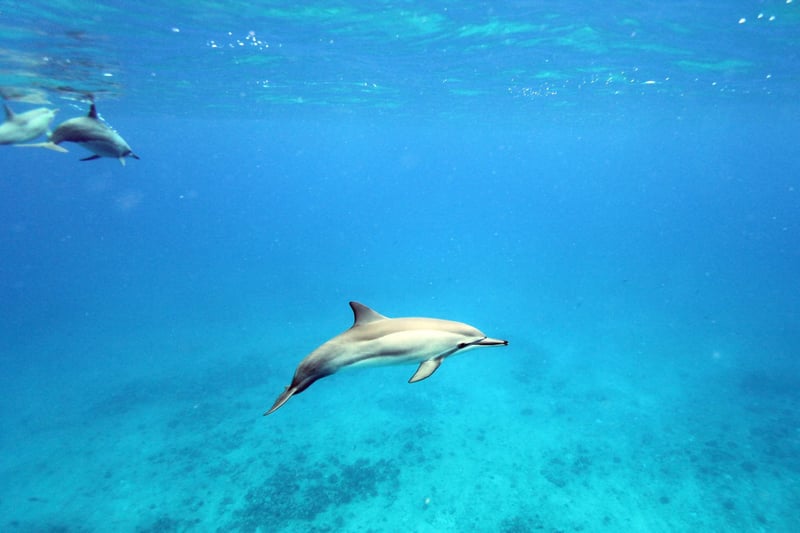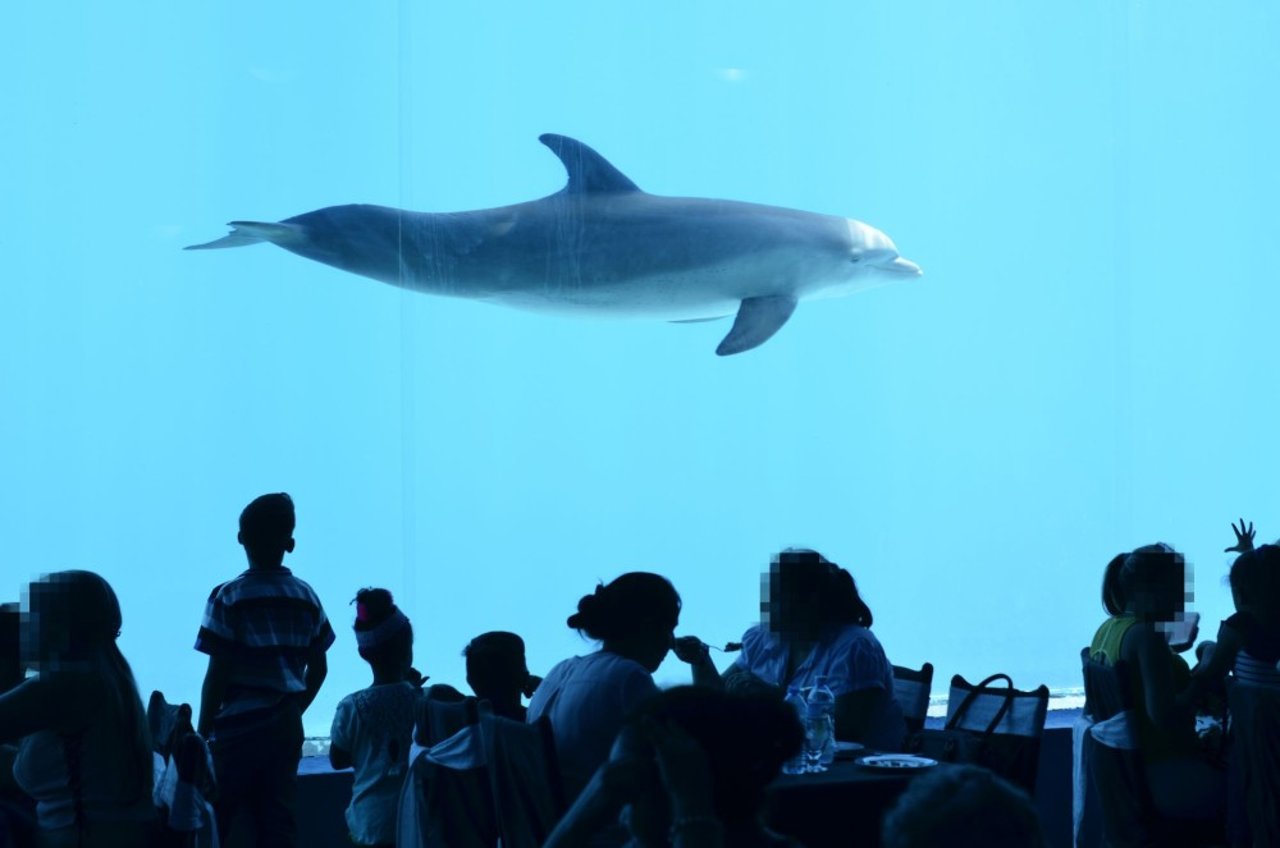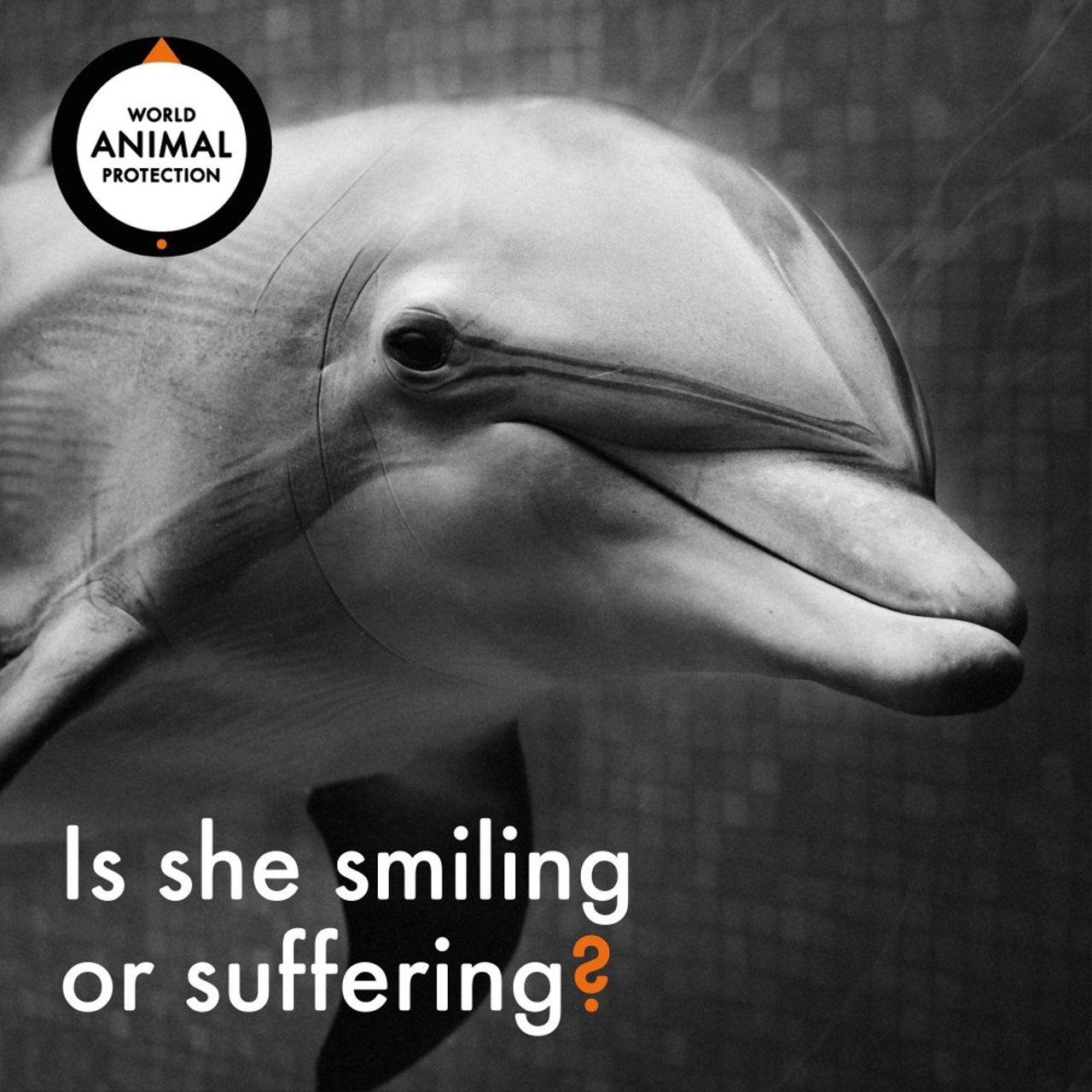
Air Canada and Transat commit to stop selling and promoting cruel dolphin entertainment
News
The commitment made by these Canadian travel companies will help put an end to the cruel dolphin entertainment industry and shift tourist demand toward more ethical experiences
We’re thrilled about Air Canada and Transat’s commitment, which was announced following our outreach to them about how dolphins suffer in captivity and changing Canadian attitudes to the exploitation of dolphins for entertainment.
Transat has stopped selling all shows featuring captive marine mammals, including swim with dolphin activities, with its holiday packages and flights-only sales. By taking this action, Transat is asserting its leadership in responsible tourism, and responding to the concerns of travellers who are increasingly sensitive to the well-being of these wild animals.
Odette Trottier, Director, Communications and Corporate Affairs for Transat said: "Transat supports the actions of World Animal Protection and is committed to helping its local incoming tourism partners, including its own TraficTours business unit, to cease commercializing such activities by finding economically viable and socially acceptable ways to replace them within two years."
Peter Fitzpatrick, Director of Corporate Communications for Air Canada, Central Canada said: "By the end of August 2020, Air Canada and its subsidiaries (including Air Canada Vacations) will no longer directly sell or promote packages to, or generate revenue from, attractions that involve the captivity of current or future generations of dolphins."
Other major travel brands such as Virgin Holidays, TripAdvisor and Booking.com, following our guidance, have taken similar steps. They recently committed to stop selling or promoting tickets to captive dolphin venues.
Cruel dolphin entertainment banned in Canada
These commitments also follow the passing of Bill S-203 in June 2019, which bans the breeding, display and trade of cetaceans (whales, dolphins and porpoises) making it illegal to possess cetaceans for purposes other than research or rehabilitation.
The average dolphin enclosure is less than 200,000 times the size of the animal’s natural habitat range (only slightly larger than the average IMAX movie screen and smaller than a basketball court).
Canadian companies continuing to sell dolphin shows and experiences, which are now illegal in Canada because it’s been deemed animal cruelty, makes no sense and goes against the public’s choice for animal-friendly entertainment. We’re happy that more travel companies are starting to respond to the scientific evidence and public pressure against keeping dolphins in captivity.
Melissa Matlow, Campaign Director for World Animal Protection said: "For wide-ranging, social and intelligent animals like dolphins, a life spent in a concrete tank entertaining tourists is no life at all. Every ticket sold is an incentive for this industry to continue breeding and capturing dolphins for a lifetime of suffering."
Don’t be fooled by a smile
We’ve launched a new global campaign, Don’t be fooled by a smile, to raise awareness about how the multi-billion dollar dolphin entertainment industry causes immense suffering to dolphins.
The industry wants you to think dolphins enjoy their confinement. They rely on a quirk of nature – the shape of a dolphins’ face – and years of misinformation.
Help us expose the lies that the dolphin entertainment industry is pushing
Our goal is to make this the last generation of dolphins to suffer for our entertainment. Here are three easy things you can do to help:
- Read our report: 'Behind the smile: The multi-billion dollar dolphin entertainment industry'
- Read and share our article: The seven biggest lies the dolphin industry tells
- Sign our petition and help us move Expedia Group to commit to end the sale and promotion of captive dolphin shows and experience
If you believe that animals are not entertainers, please help raise awareness and sign our petition to Expedia; add your voice to the growing movement fighting for better lives for animals.
Together, we can end this cruelty.

